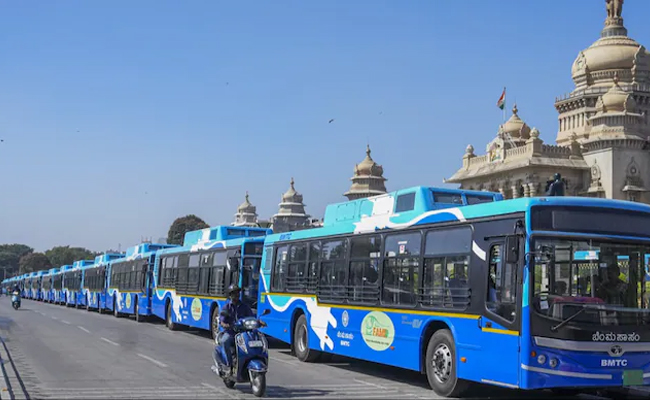Auckland: England beat New Zealand in a thrilling Super Over finish to their rain-reduced Twenty20 cricket international Sunday, clinching a 3-2 win in the five-match series.
The teams were tied when England replied with 146-7 to New Zealand's 146-5 in a match shortened by heavy rain to 11 overs per side.
Jonny Bairstow and captain Eion Morgan took 17 runs from England's Super Over, bowled by New Zealand captain Tim Southee, before Martin Guptill, Tim Seifert and Colin de Grandhomme managed only eight from New Zealand's single over.
The match was reminiscent of the World Cup final between the teams in June when England won on a count back of boundaries after being tied at the end of 50 overs and again after the one-over eliminator.
This time England's performance in the tiebreaker was decisive.
Bairstow and Morgan both hit sixes to set New Zealand a chase for 18 runs, a total which was challenging even on the postage stamp boundaries of Eden Park.
New Zealand made the unusual decision to nominate wicketkeeper Tim Seifert to take the first ball of its Super Over, bowled by Chris Jordan. Seifert took two, left a wide, hit four and had a dot ball before falling to a brilliant catch by Morgan.
With New Zealand needing 10 runs from the last two balls Guptill could only manage a single from the first ball he faced and the match was over.
Bairstow was Man of the Match for his 47 from 18 balls which helped England match New Zealand's formidable 11-over total and for his contribution in the Super Over.
"New Zealand's total was pretty imposing," Bairstow said.
"To try to chase down 150 was tough but a lot of the guys played in the T10 last year and said we're not far off here. If we can get within striking distance and with the short boundaries we've got a chance."
Bairstow said the close finishes in recent matches against New Zealand had been nerve-wracking.
"We don't want to keep this happening, I don't think anyone wants to keep that going," he said. "But it just shows how close the sides are and how close they've been throughout the series."
After England won a rain-delayed toss and sent New Zealand into bat, Martin Guptill blasted 50 from 20 balls to launch the home side towards a competitive total. New Zealand was 37-0 after only two overs and reached 100 in only 7.3 overs.
England, in contrast, made a poor beginning, losing Tom Banton and James Vince within the first seven balls. Bairstow's innings put it back in the match and England came into the last over needing 16 runs to win.
Jordan struck a crucial six from the bowling of Jimmy Neesham, then hit a four from the last ball to tie the scores and send the match into the one-over eliminator.
Let the Truth be known. If you read VB and like VB, please be a VB Supporter and Help us deliver the Truth to one and all.
Bengaluru: Whitefield police have arrested two men from Delhi for allegedly stealing mobile phones from passengers travelling in Bengaluru Metropolitan Transport Corporation (BMTC) buses and solved 14 theft cases, officials said on Tuesday.
The arrested accused have been identified as Jai Chand (25), who worked at a hotel in Delhi, and Tarun (34), an autorickshaw driver in Delhi.
Officials said on January 24, a Mahadevapura resident lodged a complaint that his iPhone 15 Plus was stolen while he was travelling on a BMTC bus towards Whitefield.
Based on the complaint, police registered a case and arrested two suspects within an hour near a lodge on Hosa Road. During the arrest, the police found a bag containing several stolen mobile phones.
ALSO READ: Two college dropouts held with drugs worth Rs 10 crore in Bengaluru
“During interrogation, the suspects confessed that they were stealing mobile phones from passengers travelling in BMTC buses. They had also committed thefts during a concert held under the Channarayapatna police station limits on January 23,” the police said.
Investigations revealed that the accused had travelled from Delhi for the concert and stolen mobile phones from the audience. A third suspect is at large and is likely hiding in the Shahdara area of Delhi.
One of the victims, a YouTuber, raised the theft issue in February in a post on X.
“Here is my (FIR No 0013/2026 is registered in Channarayapatana PS. Your GSC No. is PO1814260100013) request @DelhiPolice @BlrCityPolice to plz look into this & get my device back since it's my work phone & I am a youtuber, all my data is there! someone plz help. @dcpwhitefield,” Anirban Sarkar posted on X on February 6.
Police have recovered 14 mobile phones of various brands, collectively valued at about Rs 9 lakh, from the accused. The two were produced before the court and remanded in judicial custody.
In total, one case from Whitefield and 13 from Channarayapatna police stations were detected. Further investigation is underway.




